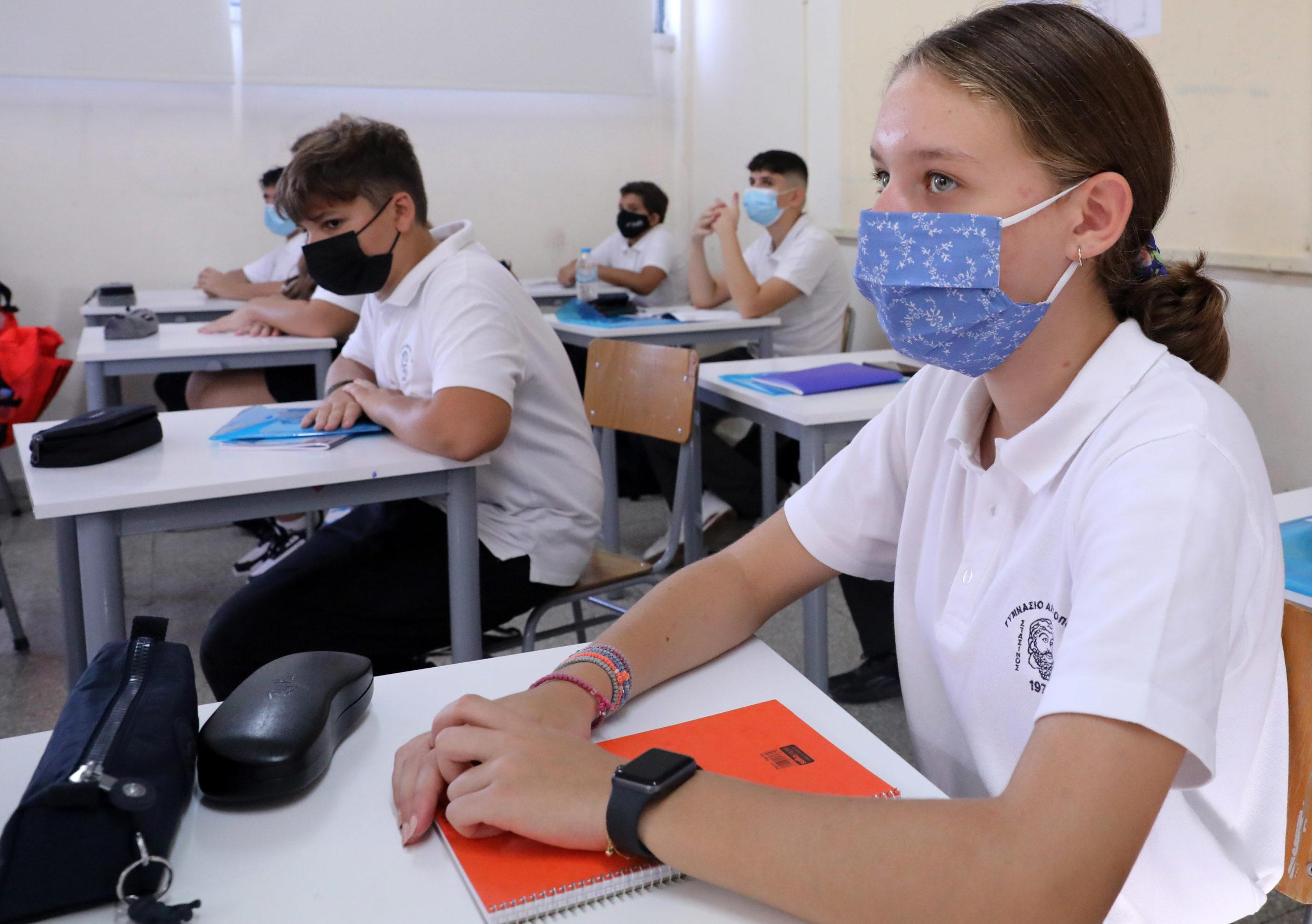Health Minister Michalis Hadjipantelas and Education Minister Prodromos Prodromou meet teacher unions in a bid to end a row over a ‘test to stay’ policy in schools for close contacts of classmates who contract COVID-19.
The meeting on Monday at 3 pm also involves the head scientist advising the government on the coronavirus outbreak, Dr Constantinos Tsioutis.
Test to stay was to be introduced from Monday, but the government opted to hold back following a teacher backlash.
It was a move to keep schools operating and not shut classrooms where positive cases were found.
The test to stay policy ends compulsory quarantine for close contacts of covid cases at schools, favouring daily tests for five consecutive days over sending children home to isolate.
However, following teacher opposition, authorities and experts are working to find the middle ground to avoid strikes from teachers who authorised their unions to take action against the measure on Saturday.
The “test to stay” policy will be tweaked, making it optional for vaccinated students, with parents to decide between having their children self-isolate or stay at school after testing.
In comments to Kathimerini daily, the Health Ministry communication officer Konstantinos Athanasiou said test to stay would act as an additional measure.
Athanasiou explained that under the current rules, a vaccinated student who does not need to self-isolate continues to go to school normally.
However, under the new policy proposed, if a vaccinated student is a close contact, then they will have to undergo daily testing to remain at school.
On the other hand, unvaccinated students reported as close contacts will have the option to either go into self-isolation for 14 days or continue going to school, taking a daily rapid test for five days.
Athanasiou noted that this measure concerns only school activities. When unvaccinated students return home after school, they should isolate.
He said the ministry is looking into covering the increased testing needs by introducing the test to stay policy.
One way would be to have existing testing stations cater to school needs.
If this is not possible, authorities will be looking into having mobile testing units visiting schools where many cases are detected.
He also said that the ministry is looking into making the most out of self-tests.
Meanwhile, teachers’ unions say the test to stay decision was rushed and not well thought through.
The vice president of the secondary teachers’ union OELMEK, Themis Polyviou, said their position is centred around the safety of students, teachers and all school staff.
He said if the Ministry of Health can convince them of the measure’s effectiveness, it will be accepted.
Polyviou referred to a series of “contradictions”, such as the fact that children will be allowed to be at schools until noon, and then they will need to be quarantined.
He argued that targeted measures are needed.
“Some 50-60 children are squeezed in buses when leaving school, while classrooms are overcrowded.
“Why aren’t we talking about these issues?”
The President of the primary teachers’ union POED, Myria Vasiliou, also expressed dissatisfaction with the measure.
She argued that the government had not been consulted them.
“It leads to contradictory, unjustified and unsubstantiated decisions, such as opening kindergartens, pre-primary and special education centres, without asking students and staff to present a negative rapid test.”










